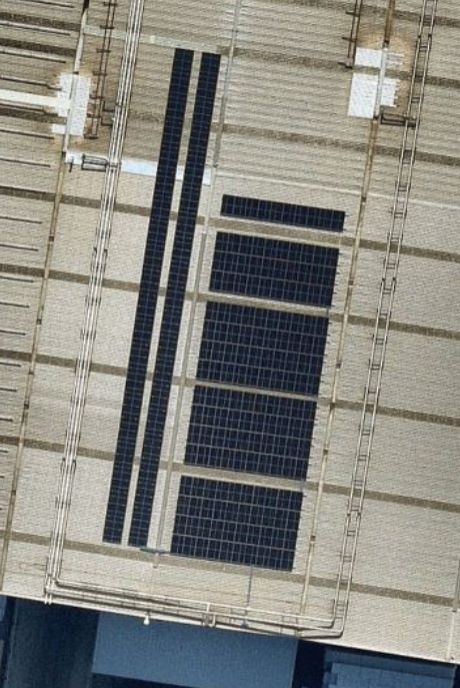A successful solar power plant project is a well-managed one, from the inception to the final commissioning phase. This blog post delves deep into the critical steps that make up an effective project management plan for solar power plants. This Project Management Plan sets the foundation for the successful execution of the Solar Power Plant Project. It encompasses all critical aspects, including scope, schedule, budget, risk, quality, sustainability, and communication. Adherence to this plan, combined with rigorous oversight and collaboration among all stakeholders, will ensure that the project achieves its objectives and contributes to the company’s reputation as a leading player in the solar energy industry.
The Necessity of Project Management in Solar Power Projects
In an era focused on sustainability and renewable energy, the implementation of solar power projects has become a significant task for companies worldwide. Effectively managing these projects requires a comprehensive strategy that ensures successful completion and smooth functioning.
Project Management Plan for Solar Power Plant
1. Project Initiation
Every solar power plant project begins with an initiation phase. Here, the project’s feasibility is studied, assessing potential sites, the availability of solar radiation, and other climatic conditions. Once a project is deemed viable, stakeholders come together to set common goals and objectives, creating a Project Charter that serves as the project’s backbone.
2. Project Planning
In this phase, a detailed Project Management Plan (PMP) is developed, outlining the project scope, budget, timelines, and performance objectives. It includes creating a work breakdown structure (WBS), risk management plans, communication plans, and procurement plans. A detailed engineering design of the solar plant is also developed, detailing the plant layout, system configuration, component specifications, and other crucial aspects.
3. Project Execution
The project execution phase involves procuring the necessary equipment, hiring a competent workforce, and commencing the construction work. Project managers play a pivotal role in managing resources, ensuring quality control, and monitoring the project’s progress in alignment with the PMP.
4. Monitoring and Control
Continuous tracking of project activities is vital to ensure that the project is on track and within its defined scope, time, and cost. Any deviations are addressed promptly, and corrective actions are taken. The project manager uses key performance indicators (KPIs) to track progress and implements changes where necessary.
5. Project Closure
Once the solar power plant is ready and all project objectives have been met, the project enters the closure phase. This includes conducting final inspections, obtaining necessary permits, transferring the project to the operations team, and closing contracts. Lastly, a project review is done to evaluate performance and learn lessons for future projects.
Key Factors for Successful Project Management in Solar Power Projects
Several factors contribute to the successful management of a solar power plant project. These include a strong emphasis on safety practices, efficient stakeholder communication, proactive risk management, and comprehensive documentation.
Developing a solar power plant is a complex process that demands meticulous planning, organization, and management. With an effective project management plan, companies can successfully establish solar power plants that contribute significantly to our sustainable future.
In the evolving world of renewable energy, understanding and implementing effective project management practices is not just beneficial – it’s essential.
Considering a solar power project and need professional guidance to ensure it’s a success? Contact us at Target Solar! Our team of experts are experienced in comprehensive solar project management, from inception to completion. With us, your project is not just an investment, it’s a commitment to sustainable future.
Reach out to us today for the proficient handling of your solar power projects. Let us power your journey towards clean, renewable energy.
Don’t just go solar, go Target Solar. Your solar future starts here!
Senior Project Nanager Note for Project Management Plan for Solar Power Plant
1. Executive Summary
The Solar Power Plant Project aims to design, construct, and commission a state-of-the-art solar energy facility. As the Project Manager for Target Solar, one of the largest solar company in Australia, this document lays out a comprehensive management plan that adheres to industry best practices, regulatory requirements, and environmental considerations.
2. Project Scope and Objectives
2.1 Objectives:
- To deliver a solar power plant with a capacity of XX MW.
- To ensure energy generation aligns with regional demands and environmental standards.
- To complete the project within budget and time constraints.
2.2 Scope:
- Design and planning of the solar power plant.
- Procurement of materials and equipment.
- Construction and commissioning.
- Training and handover to the operations team.
3. Timeline and Milestones
3.1 Schedule:
- Project initiation: [Date]
- Design completion: [Date]
- Procurement and construction start: [Date]
- Commissioning and handover: [Date]
3.2 Key Milestones:
- Regulatory approvals
- Site preparation
- Solar panel installation
- Grid connection
4. Budget and Resource Allocation
- Total budget: $XXX million
- Contingency: $XX million
- Resource allocation across various phases and departments.
5. Risk Management
- Identification and assessment of potential risks.
- Implementation of mitigation strategies.
- Regular risk monitoring and review.
6. Quality Management
- Compliance with international standards (ISO, etc.).
- Regular quality audits and inspections.
- Continuous improvement initiatives.
7. Stakeholder Engagement
- Regular communication with stakeholders, including investors, local authorities, and community.
- Transparent reporting and issue resolution.
8. Sustainability and Environmental Considerations
- Alignment with environmental regulations.
- Adoption of sustainable practices in construction and operation.
9. Communication and Reporting
- Regular status reports to the executive team.
- Collaboration tools and platforms for team communication.
10. Project Closure and Evaluation
- Finalization of all project deliverables.
- Post-project evaluation, including lessons learned and best practices.
11. Approvals
- Project Sponsor: [Name]
- Project Steering Committee: [Names]
???? Whatever You Need in Solar, We’ve Got You!
From initial consultation to installation, ongoing support, and assistance with government incentives, we provide comprehensive solar solutions tailored just for you.
???? Why Choose Us for Your Solar Needs?
Free Initial Consultation
Expert Installation Services
24/7 Customer Support
Assistance with Government Incentives
Trusted Name in Solar Industry
Join the countless satisfied customers who have made the smart switch to solar:
Learn More About Our ServicesReady to take the first step towards a greener future? Get in touch now:
Call Us: 1300 776 527



